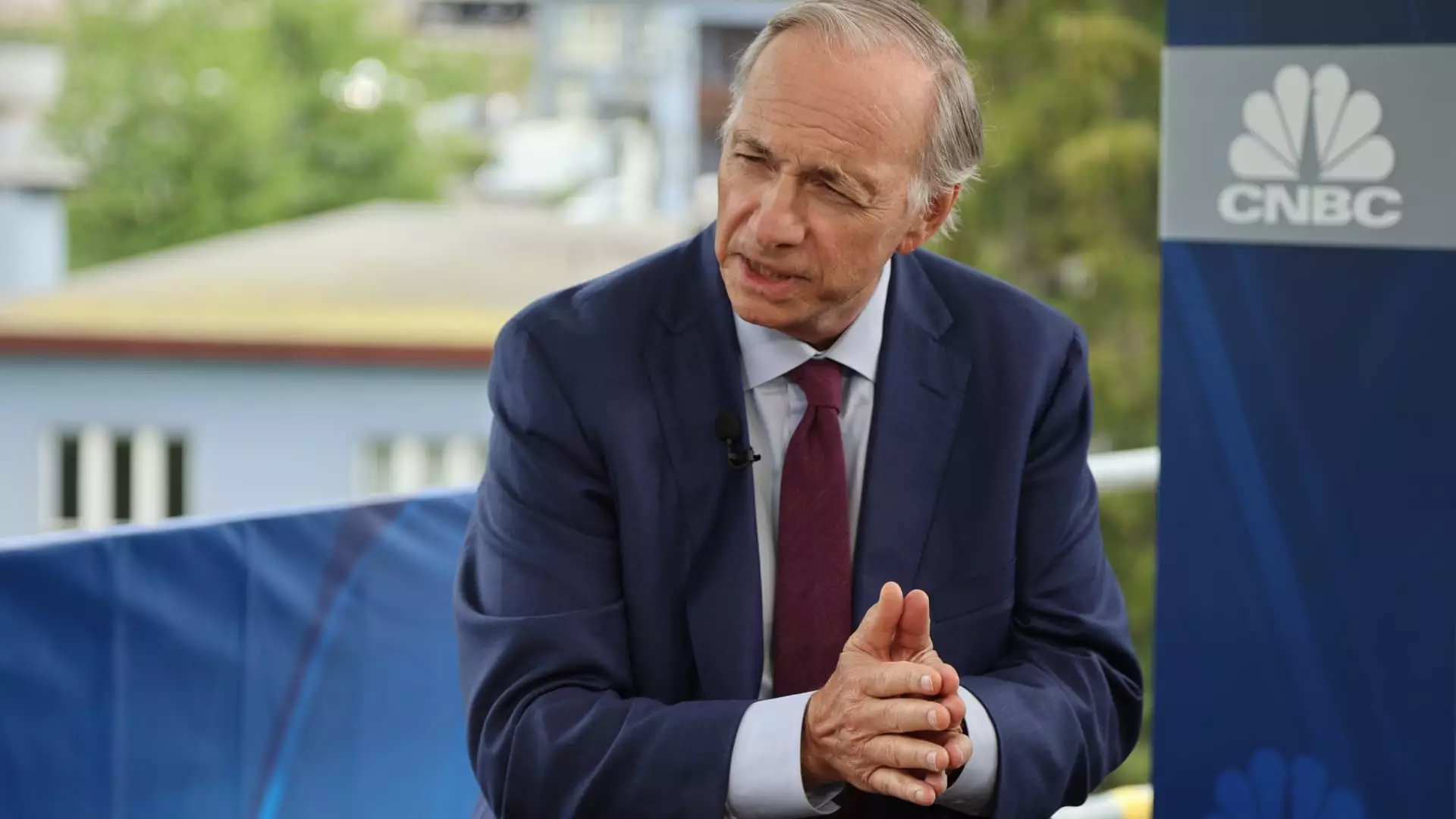In a recent conversation with CNBC’s “Squawk Box Asia,” renowned investor and founder of Bridgewater Associates, Ray Dalio, underscored the gravity of the upcoming 2024 U.S. elections, labeling them as potentially the most pivotal in his lifetime. Dalio’s insights reveal deep concern over the current political landscape, which he perceives as marred by extreme divisions that threaten to undermine the fabric of democracy. His assertion that the nation requires a “strong leader of the middle” highlights his belief that a moderating force is crucial for fostering unity in a time of widespread polarization.
Dalio articulated that the essence of the election transcends mere political competition—it symbolizes a broader struggle for internal order within the United States. The specter of unrest surrounding the acceptance of election results amplifies this concern, raising questions about the stability of power transitions in the future. Such disruptions could potentially signal a decline in democratic norms, which are foundational to a functioning society.
A significant part of Dalio’s discourse revolved around a troubling trend he identifies as a “win-at-all-cost mentality.” This cultural shift has cultivated a hostile environment where compromise and negotiation—hallmarks of effective governance—are increasingly viewed as weaknesses. With Republicans and Democrats entrenched in their respective ideologies, essential issues including abortion rights, immigration reform, and climate action have become battlegrounds rather than topics for collaborative dialogue.
Despite this discordance, the electorate remains particularly concerned with pressing issues like inflation and the surging cost of living. It is here where Dalio’s analysis strikes a chord with the average voter, as economic stability is a universal concern cutting across party lines. Yet, he argues that the current political candidates do not embody the solutions the country so desperately requires.
Dalio is candid about his disapproval of both major political parties, suggesting that neither encapsulates the needs of the American populace. Instead, he advocates for a coming together of moderate voices capable of forging reforms that would engender “broad-based prosperity.” This vision of a more inclusive economic framework could help alleviate the disparities present in modern American society, where only a select few currently reap the benefits of innovation and education.
His reference to Singapore serves as a poignant example of how a society that prioritizes broad-based prosperity can lead to a harmonious and equitable environment. Dalio cites factors like extensive education systems and accessible public housing as components that contribute to Singapore’s societal success, hinting at a model that could be emulated in the U.S.
In closing, Ray Dalio’s reflections invite us to reconsider the dynamics of American politics as we approach the crucial elections of 2024. His clarity about the need for moderation, compromise, and collective leadership presents a hopeful avenue towards addressing the stagnation and discord plaguing the nation. The call for unity over divisiveness may not only better serve the democratic process but also pave the way for a more stable, prosperous future—one that provides opportunities for all Americans, not just a privileged few.

